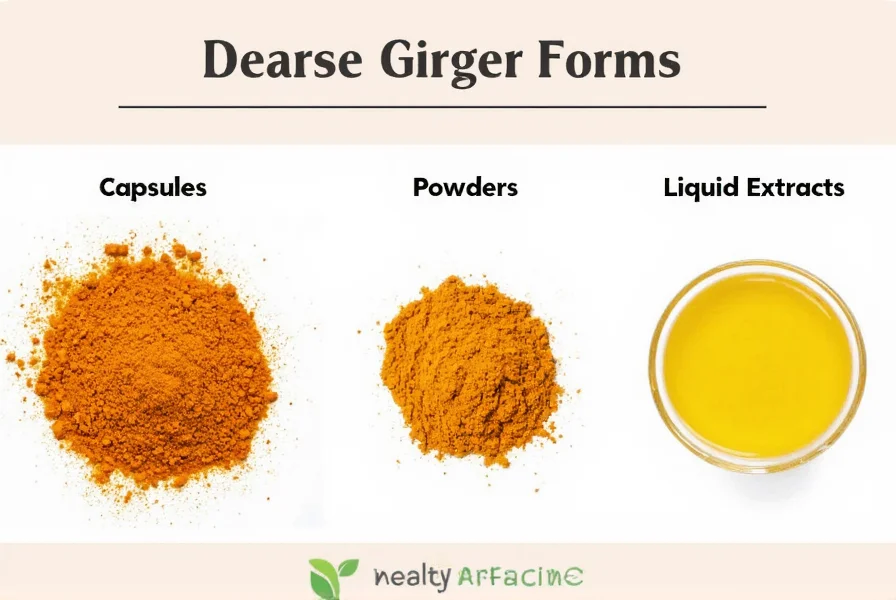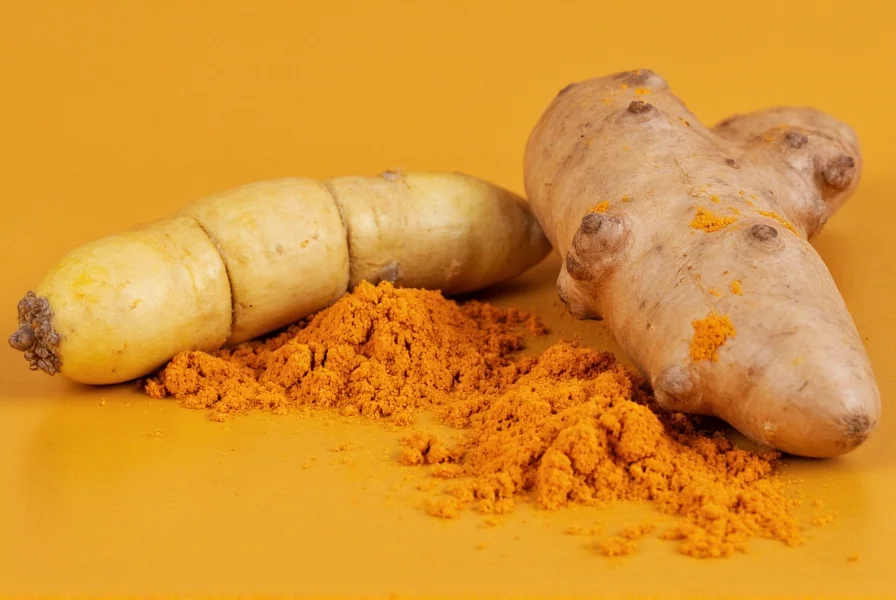The Science Behind Turmeric and Ginger Supplements
When evaluating turmeric and ginger supplement benefits, it's essential to understand the active compounds driving their effects. Turmeric's primary bioactive component, curcumin, demonstrates potent anti-inflammatory properties in clinical studies. Research published in the Journal of Medicinal Food indicates curcumin may reduce inflammatory markers by up to 30% in regular users. Ginger's effectiveness comes from gingerols and shogaols, compounds shown to inhibit inflammatory pathways similarly to non-steroidal anti-inflammatory drugs (NSAIDs), but with fewer gastrointestinal side effects.
Understanding turmeric and ginger supplement for inflammation requires examining their complementary mechanisms. While curcumin targets multiple inflammatory pathways including NF-kB and COX-2 enzymes, gingerols primarily affect prostaglandin synthesis. This dual-action approach explains why many clinical trials investigating natural anti-inflammatory solutions examine these spices in combination.
Comparative Benefits and Applications
| Benefit | Turmeric | Ginger | Combined Effect |
|---|---|---|---|
| Inflammation Reduction | High (via curcumin) | Moderate | Synergistic effect |
| Digestive Support | Moderate | High | Enhanced digestion |
| Nausea Relief | Low | High | Significant relief |
| Joint Health | High | Moderate | Improved mobility |
Optimal Usage Guidelines
For those researching turmeric ginger supplement dosage recommendations, timing and formulation matter significantly. Curcumin has notoriously poor bioavailability—only about 1% absorbs without enhancement. Look for supplements containing piperine (black pepper extract), which increases curcumin absorption by 2,000%. The optimal time to take turmeric and ginger supplements is with meals containing healthy fats, as both compounds are fat-soluble.
Clinical trials suggest effective daily doses of 500-2,000 mg of standardized curcumin extract (typically 95% curcuminoids) and 1,000-2,000 mg of ginger root powder. However, individual responses vary considerably. Those seeking turmeric and ginger supplement for arthritis should consider formulations specifically designed for joint health, often containing additional ingredients like boswellia.
Safety Profile and Considerations
While generally safe, understanding potential side effects of turmeric and ginger supplements is crucial. Turmeric may interact with blood thinners like warfarin due to mild anticoagulant properties. Ginger can lower blood sugar, requiring monitoring for diabetics. Both may increase bleeding risk before surgery. Common side effects include mild digestive upset, especially at higher doses.
Quality considerations for turmeric and ginger supplements significantly impact effectiveness. Third-party testing for purity and potency remains essential, as studies show considerable variation in actual curcumin content among brands. Look for certifications from USP, NSF, or ConsumerLab to ensure product integrity. Those evaluating scientific evidence for turmeric and ginger supplements should prioritize studies using standardized extracts rather than raw spice measurements.

Integrating Into Your Wellness Routine
For optimal results with turmeric and ginger supplements, consistency matters more than timing. Research suggests taking these supplements daily for at least 8-12 weeks to assess benefits for chronic inflammation. Morning dosing with breakfast provides steady blood levels throughout the day, while evening dosing may better support overnight recovery processes.
Those exploring turmeric and ginger supplement for immune support should note these work best as preventive measures rather than acute treatments. The anti-inflammatory effects build gradually, making them suitable for long-term wellness strategies rather than immediate symptom relief. Always pair supplementation with a balanced diet rich in whole foods for comprehensive health support.
Frequently Asked Questions
Can I take turmeric and ginger supplements together safely?
Yes, turmeric and ginger supplements can typically be taken together as they have complementary mechanisms with minimal interaction risks. However, both have mild blood-thinning properties, so consult your doctor if you take anticoagulant medications or have bleeding disorders. Most combination supplements already account for appropriate ratios.
How long does it take to see results from turmeric and ginger supplements?
Most clinical studies show measurable benefits after 8-12 weeks of consistent daily use. Some people report reduced joint discomfort within 2-4 weeks, while digestive benefits from ginger may appear within days. Individual responses vary based on health status, dosage, and supplement quality.
Should I take turmeric supplements with black pepper?
Yes, taking turmeric supplements with piperine (black pepper extract) significantly enhances curcumin absorption. Research shows piperine can increase bioavailability by up to 2,000%. Most quality turmeric supplements already include 5-10mg of piperine per dose, eliminating the need for additional black pepper.
Can turmeric and ginger supplements help with weight management?
While not weight loss supplements per se, both may support metabolic health. Ginger shows potential for modestly increasing thermogenesis and reducing hunger, while turmeric's anti-inflammatory effects may improve insulin sensitivity. They work best as part of a comprehensive approach including diet and exercise.
Are there any conditions where I should avoid turmeric and ginger supplements?
Individuals with gallbladder disease should avoid high-dose turmeric as it may stimulate bile production. Those with bleeding disorders or scheduled for surgery should avoid both supplements 2 weeks prior due to potential blood-thinning effects. Pregnant women should consult their healthcare provider before using therapeutic doses of ginger.











 浙公网安备
33010002000092号
浙公网安备
33010002000092号 浙B2-20120091-4
浙B2-20120091-4